PUBLICATIONS
As our work progresses, publications are arising from our research themes and cross-cutting projects. We produce working papers, journal articles, evidence submissions to government enquiries, essays, books and book chapters. Subscribe to our newsletter to receive a monthly digest in your inbox. If you want to hear more frequently from us, you can subscribe to email updates from the website directly.

Business models providing used clothing to consumers have the potential to reduce pressure on raw materials and primary production. This research used in-depth interviews and a literature review to improve understanding of alternative business models in the fashion sector.

This paper seeks to explore how professionals in the financial sector understand the challenge that climate change presents to economy and society. It is a case study into how ‘climate-related financial risk’ is understood in a particular area of expertise—within the actuarial profession.

A critical and evidence-based account of the COVID-19 pandemic as a political–economic rupture, exposing underlying power struggles and social injustices. By CUSP researchers Will Davies, Nick Taylor, and PERC colleagues.
This paper documents how materialistic value orientations have been linked to poorer wellbeing across different facets of wellbeing (personal, social, and environmental) and that these negative associations have been recorded across the lifespan.
Vast sums of public money are invested into universities globally as anchor institutions and knowledge bases providing seedbed resources for research and development and entrepreneurship. This paper examines two UK case studies of government support from the “Innovation Knowledge Centre” (IKC) program to translate research into industry innovation for public good.
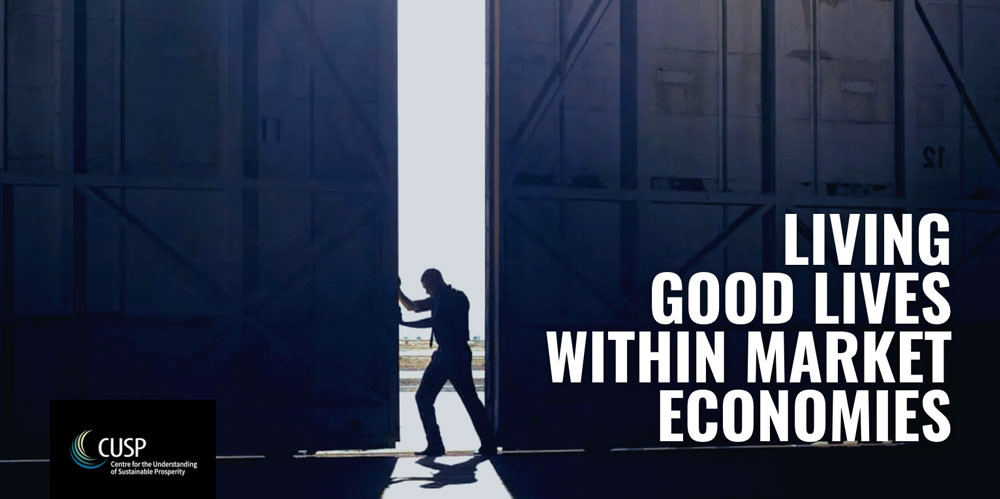
Almost everything is up for sale these days. The belief that markets are an invaluable instrument to direct our common economic efforts is deeply embedded in Western societies. But what role should markets play in a state of sustainable prosperity? This paper provides a review of Michael Sandel’s What Money Can’t Buy and The Tyranny of Merit.

Long-term care systems across countries within the OECD have undergone a progressive marketisation and financialisation in recent decades. In this Personal View, we argue that the accomapnying neoliberal market values make poor guiding principles for the care sector, identifying the dysfunctional dynamics that arise as a result, and reflecting on the clinical implications of each, with a focus on facility-based care.
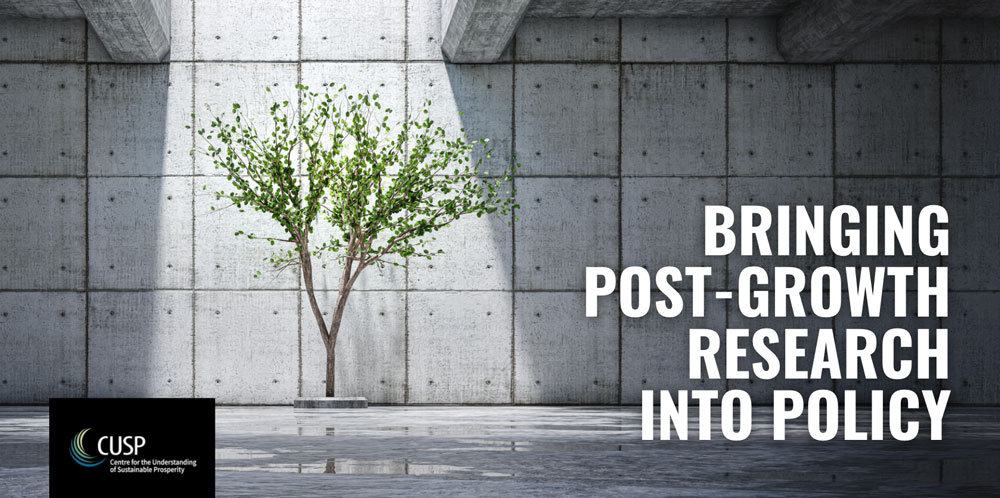
Drawing lessons from a six-month project funded by the Laudes Foundation, as well as from a wider review of evidence, this report analyses the barriers to bringing postgrowth research into policy. It concludes by making recommendations on the keys to doing this more effectively.

Strong materialistic values help to maintain consumer capitalism, but they can have negative consequences for individual well-being, for social equity and for environmental sustainability. In this paper, we add to the existing literature on the adverse consequences of materialistic values by highlighting their negative association with engagement in attitudes and actions that support the achievement of sustainable well-being.

Critically evaluating existing literature, this paper discusses the potential of tripartite partnerships (TPPs) to advance sustainable consumption practices. The authors argue that multi-sector partnership approaches can strengthen a socio-political basis for the advancement of public policies and inter-sectorial dynamics offering mechanisms that can foster sustainable consumption.

How do Business Accelerators and Business Angels’ assess the human capital of socio-environmental mission led entrepreneurs? This paper investigates the role of entrepreneurs’ human capital on the potential of newly created ventures to receive equity funding from Accelerators and Business Angels using a resource-based approach to entrepreneurship theory.

Letter by John Meadley and CUSP director Tim Jackson to the Financial Times, highlighting the urgent need for decent land use policy, to prevent the same predatory financial practices prevalent in the social care sector from taking hold in rural communities too.

Building on a longitudinal interview-based study, the authors examine how micro, small and medium enterprises (MSMEs) in the UK fashion industry advance the circular economy (CE).

The achievement of sustainable prosperity requires the enhancement of human wellbeing alongside increased care for the environment. In this working paper, Patrick Elf, Amy Isham and Tim Jackson explore the emerging potential of Self-Transcendent Experiences (STEs) to deliver beneficial effects on human wellbeing and sustainable attitudes and behaviours.
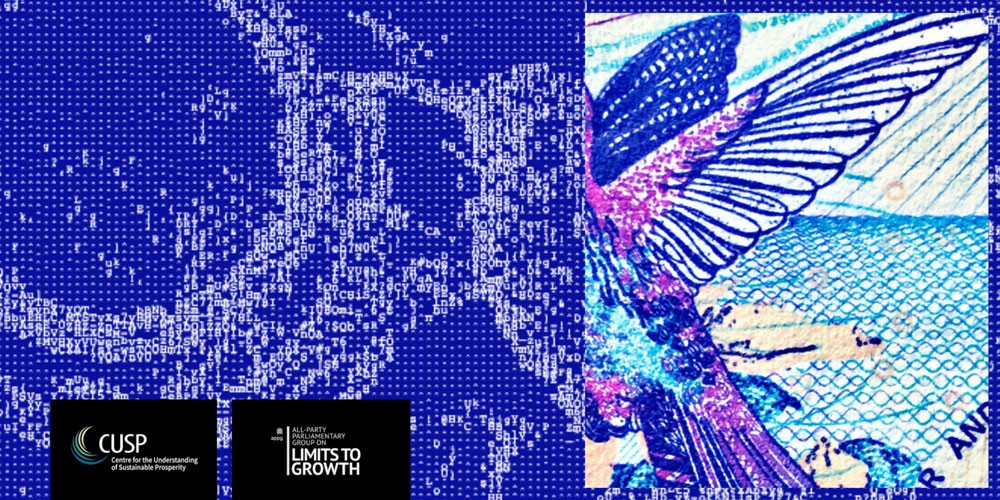
In the years since the financial crisis, a heated debate has broken out amongst macroeconomists about the appropriate roles of fiscal and monetary policy in managing public sector debt. This working paper and accompanying policy briefing introduce the main lines of argument on both sides of the controversy. We find i.a. that a return to fiscal austerity would be both dangerous and unjustified and that moving beyond ideology is key to the levelling-up agenda.
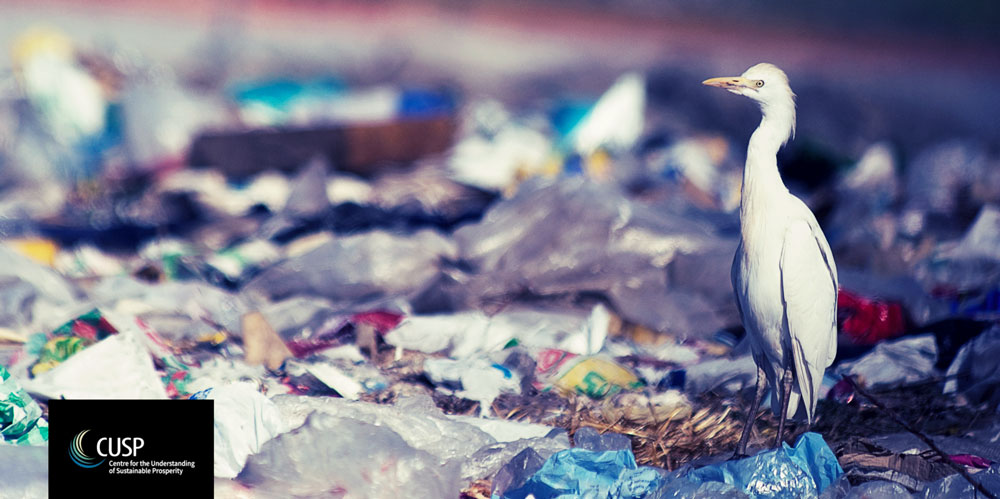
Ahead of hearings planned for 9 February 2022, the UK Environmental Audit Committee invited written submissions to examine how the UK Government could incorporate environmental sustainability into its leading measures of UK economic success, addressing questions around ‘inclusive wealth’, measurement of national wellbeing, and national government accounting.
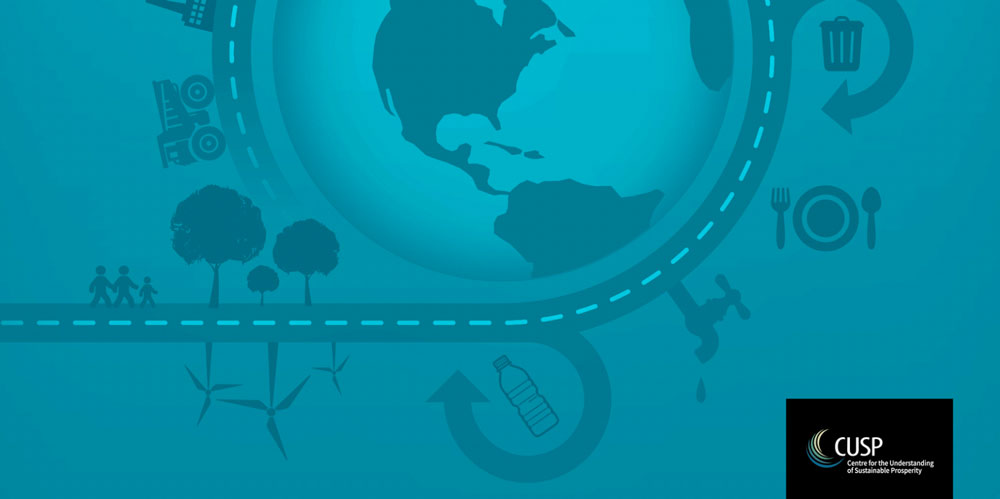
SankeySim was developed to support the work of the Council of Canadian Academies Expert Panel on the Circular Economy in Canada and the preparation of their report Turning Point (2021). In this working paper, we describe the SankeySim model that calculates the impact on materials throughput of various measures intended to increase the circularity of the Canadian economy.
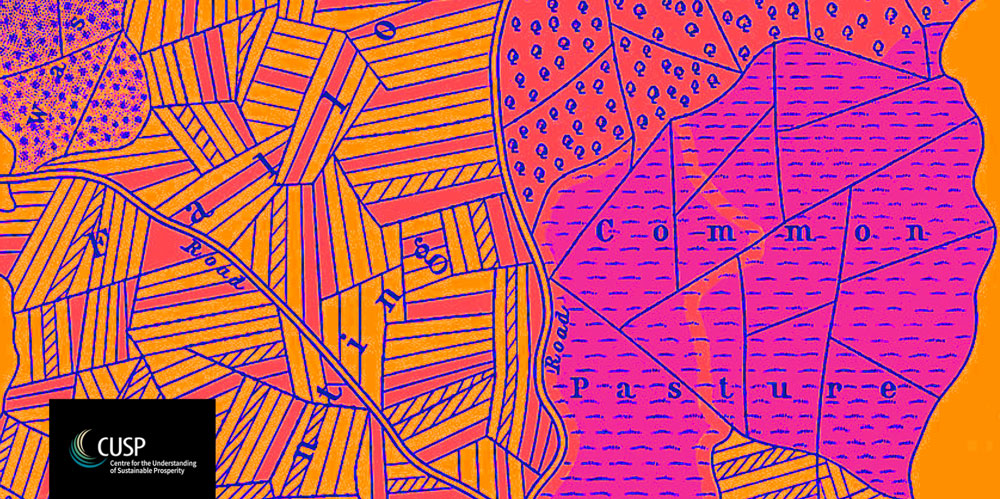
This book chapter as part of the edited collection ‘Addressing the Climate Crisis: Local action in theory and practice’ draws from Elinor Ostrom’s scholarship on managing commons and a wider literature reviewto make the case for cooperative community-based action in the domains of community energy, agriculture and transport.

Calls for social innovation to help with the effort to halt biodiversity loss are manifold. Yet, a systematic overview of research on social innovation and biodiversity is missing and this paper contributes by focusing on social innovation to tackle the drivers of biodiversity loss and unsustainability.

In this article, Amy Isham and Tim Jackson explore the dynamics of a psychological state known as flow. By synthesising the results of a series of experience sampling, survey, and experimental studies, we identify optimal activities that are shown to have low environmental costs and high levels of human wellbeing.

The clothing industry is a significant contributor to environmental degradation. Yet, easily accessible life cycle inventory (LCI) data that can be used in decision making by practitioners and researchers are lacking. This study addresses this gap.

New study examining the fashion design process as practised at the mass-market level. The mass-market design process is found to prioritise profits rather than aesthetic aspects, with the buyer exercising more power than the designer. This hinders creativity, which, in turn, may impede a move towards more environmentally benign designs.

A growing body of research demonstrates that wellbeing is positively correlated with ecologically sustainable behaviours, yet there is still much to understand about the nature of this association. This study suggest that pro-environmental behaviours are not only compatible with wellbeing due to a virtuous sense of “doing good,” but they may be inherently pleasurable.
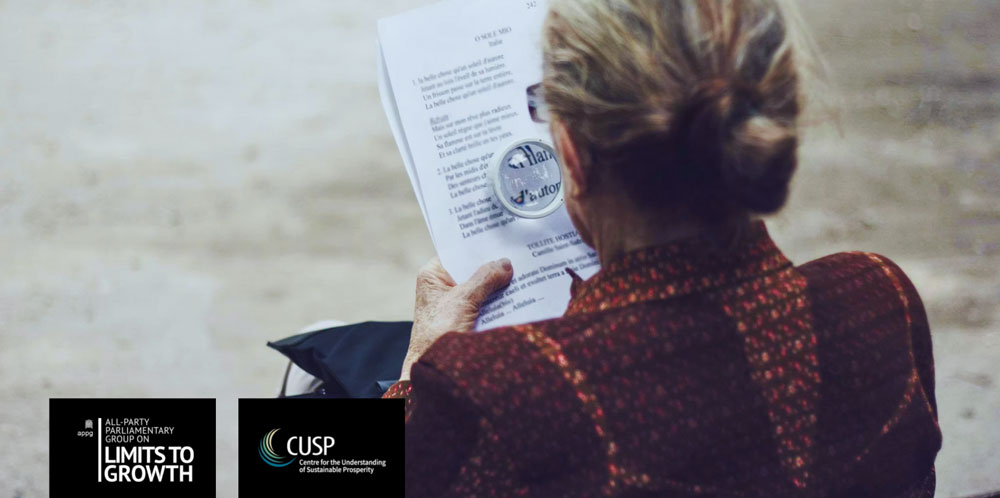
The Health and Care Bill has its second reading in the House of Lords on Tuesday 7 December. Coinciding with a new Panorama investigation, Crisis in Care: Follow the Money, this briefing proposes three ways in which the Health and Care Bill should be amended to tackle the harmful impacts of financialisation in the care home sector.
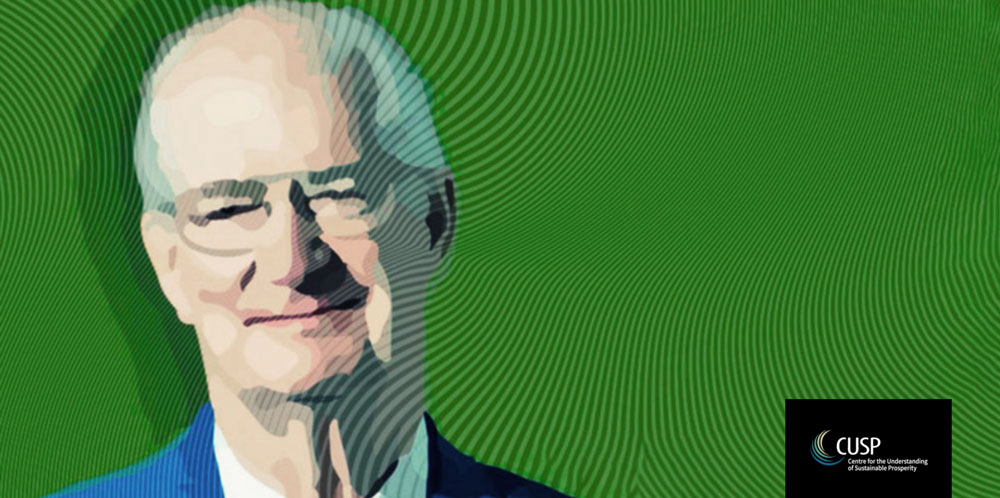
As the first biography of Professor Herman Daly, this book provides an in-depth account of one of the leading thinkers and most widely read writers on economics, environment and sustainability. Drawing on extensive interviews with Daly and in-depth analysis of his publications and debates, Peter Victor presents a unique insight into Daly’s life from childhood to the present day, describing his intellectual development, inspirations and influence.
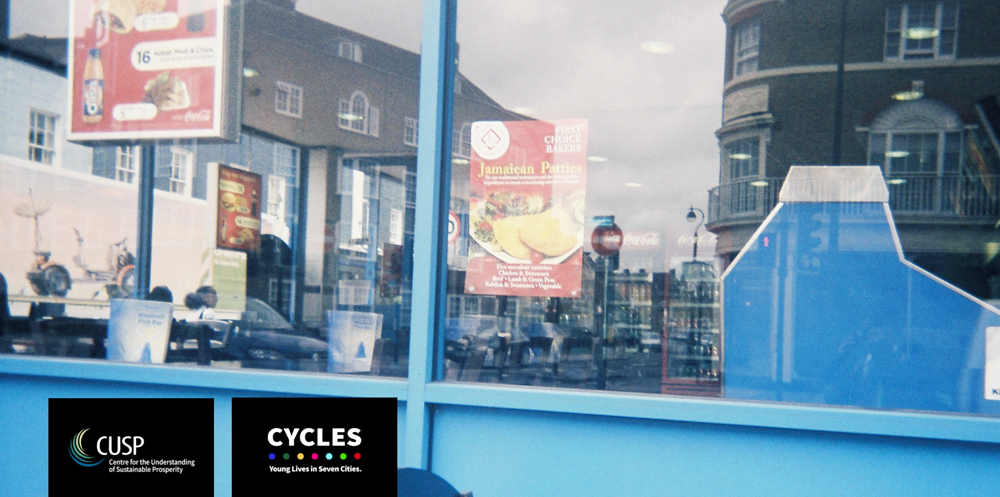
Fast food seems unequivocally at odds with any moves towards more sustainable food consumption. It is identified as a major contributor to obesity, health inequalities, and to environmental impacts through its production and distribution. However, this problematisation of fast food ignores its contribution to understandings of “living well”, particularly for young people.
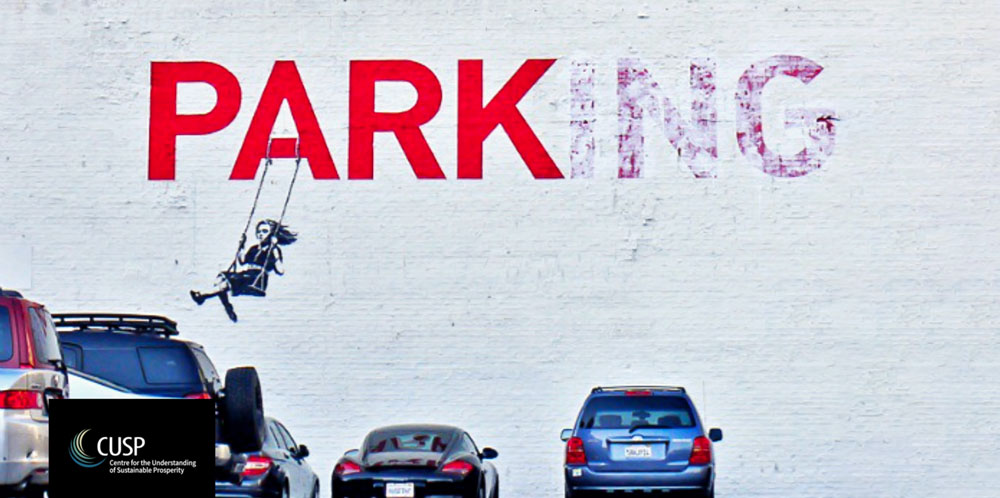
The economic system to which we are in thrall throws us out of balance, Tim Jackson and Julian Sheather write in this blog. By failing to meet our most essential needs it is doomed to immiserate and, ultimately, sicken us. We urgently need to regain a richer, more satisfying understanding of ourselves, and our place in the world.
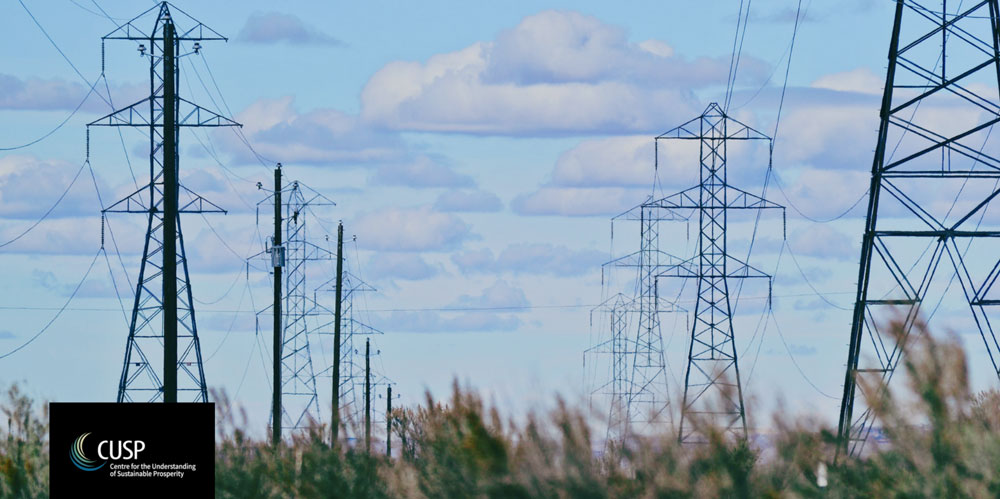
Reaching the UK net-zero emissions target translates into substantial investment requirements into low-carbon energy infrastructure. However, investors are currently not investing sufficiently in renewable energy capacity, leading to the so-called green finance gap.
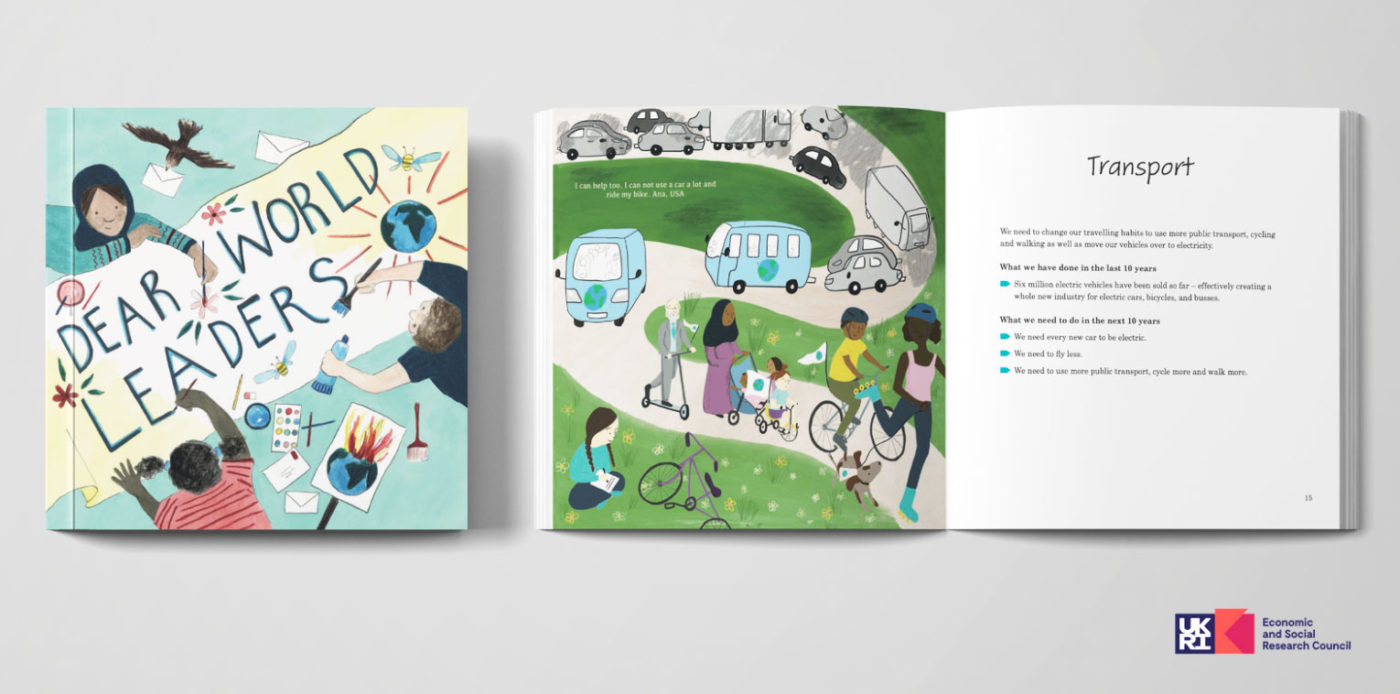
This is a book which is set out to help children learn about climate change and support them in understanding some of the solutions to the many problems the world is facing. The cross-institutional project was led by Prof Aled Jones at the Global Sustainability Institute. It includes lesson plans and activities for children to help them think about the world with climate change, how they can be active in responding to its challenges and what might happen over the next ten years.
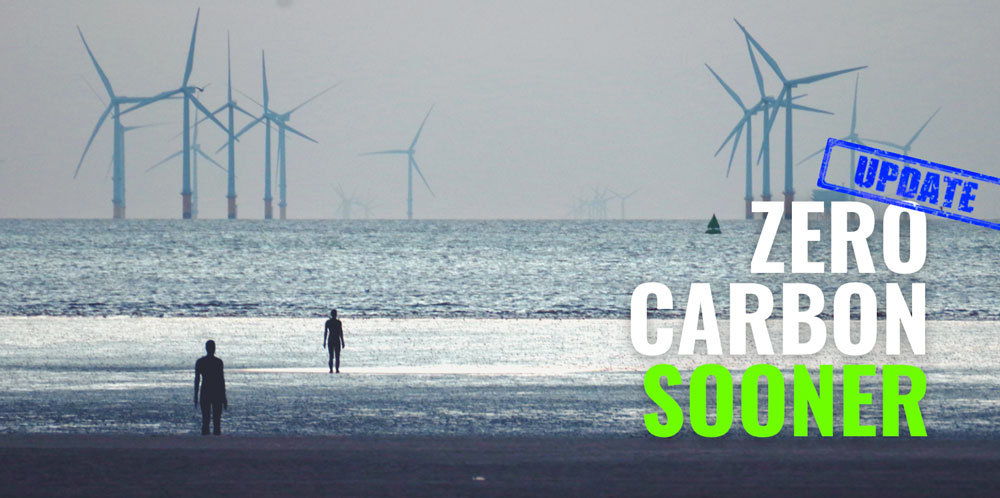
This paper is an update of an earlier briefing note, revised to take account of new findings from the IPCC’s updated 6th Assessment Report (AR6). The broad aim of the paper is to establish how soon the UK should aim for (net) zero carbon emissions.
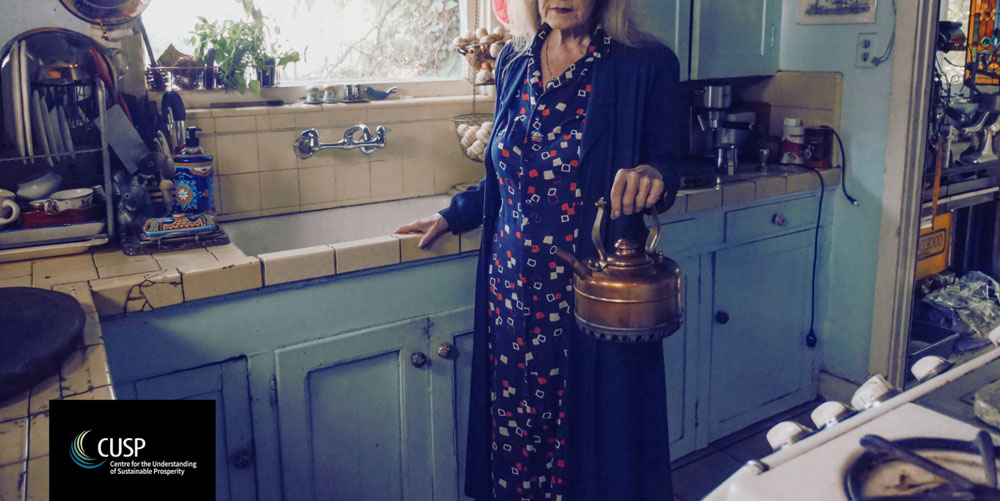
Drawing on serial interviews with individuals in the United Kingdom, we explore how the transition to retirement highlights the complexity of participants’ attachment to things, and what the implications for sustainable consumption and for later-life wellbeing are.

This article addresses a pertinent question facing government policymakers: how best to support VC to achieve climate change objectives? Based on over 100 in-depth interviews, it focuses on the supply-side policy, design, and implementation of four UK government-backed venture capital funds (GVCFs) at various stages of their development.
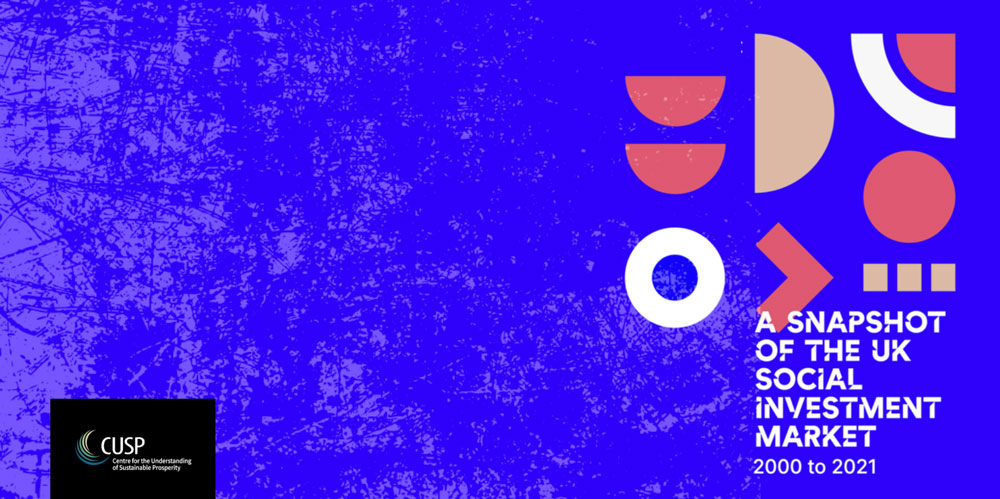
Interest in the social and environmental ‘purpose of business’ is growing. Could it be part of a move towards a better kind of economy and what kind of investment is needed? CUSP Fellow Dr Jess Daggers points to the history of the social investment market in the UK as a source of insight into the attempt to combine financial tools and social purpose.

Drawing on semi-structured interviews carried out with members and organisers of the Ages and Stages theatre group in Stoke-on-Trent, United Kingdom, this article examines the role of community theatre as an arts practice that facilitates intergenerational relationships. The findings point to a need for a deeper integration of arts and cultural practice, intergenerational practice and urban regeneration schemes.

Previous research has shown that the possession of materialistic values can lead individuals to be less likely to experience flow, an important component of well-being. This study tested whether a lack of self-regulatory resources, and a tendency to use self-regulatory resources for avoidance purposes, can mediate this relationship.
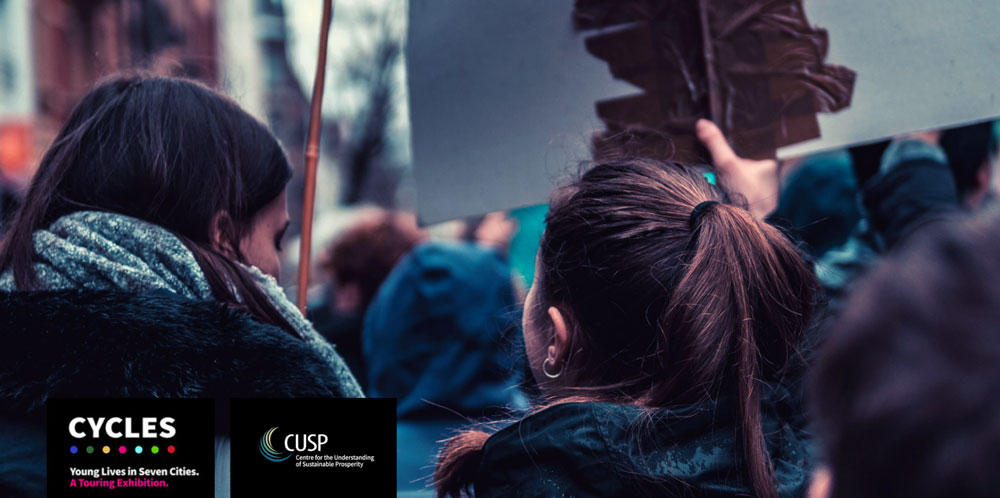
Youth Attitudes and Participation in Climate Protest: An international cities comparison Journal paper | Frontiers in Political Science | September 2021 Kate Prendergast, Bronwyn Hayward, Midori Aoyagi, Kate Burningham, Mehedi M. Hasan, Tim Jackson, Vimlendu Jha, Larissa Kuroki, Anastasia Loukianov, Helio Mattar, Ingrid Schudel, Sue Venn and Aya Yoshida Summary This article examines youth participation […]
